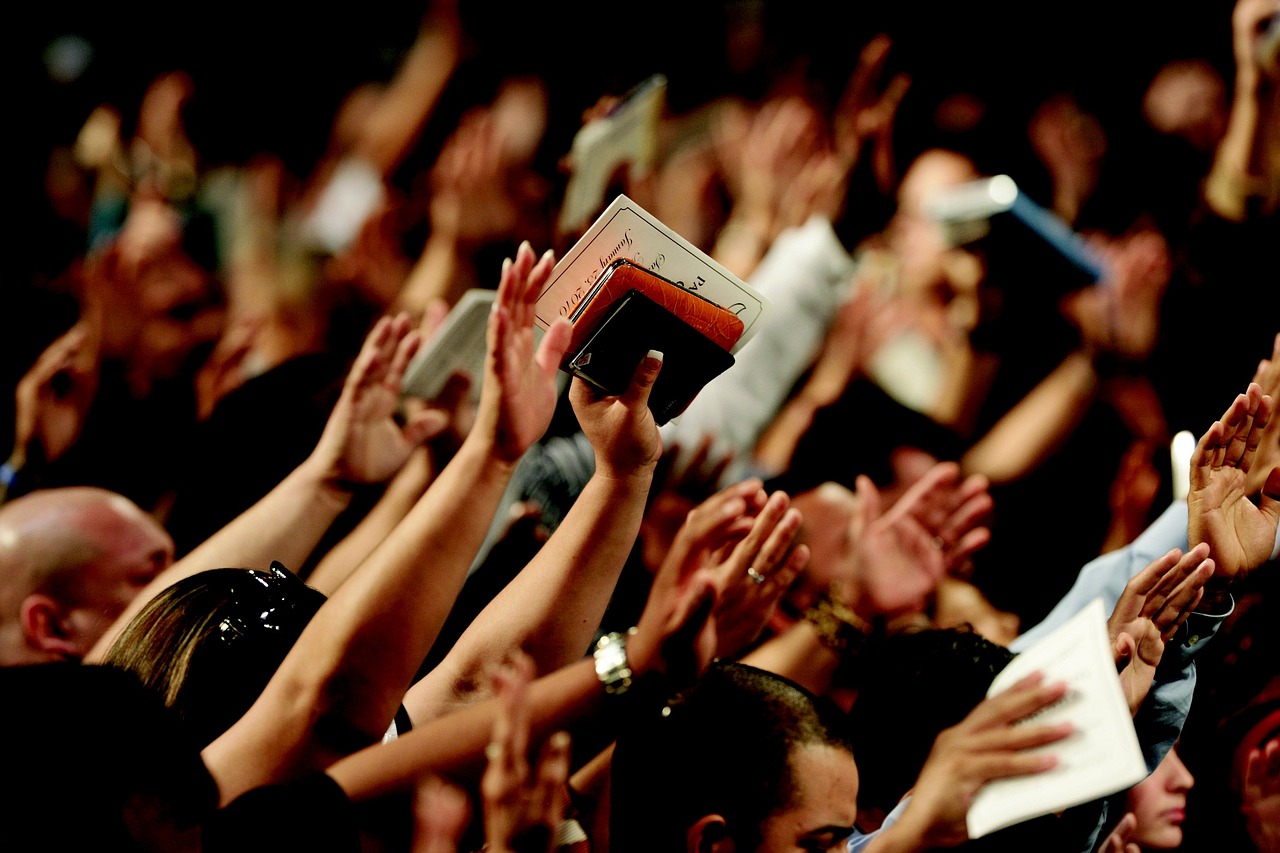Answering the question of why people worship God seems both simple and complex.
The primary definition of worship is to honor or show reverence for a divine being or supernatural power.
But this definition implies that there are multiple potential divine beings or supernatural powers to choose from.
Further, the secondary definition reveals that worship may be directed toward other humans or physical objects.
The primary definition of God, according to Merriam-Webster.com, is the supreme or ultimate reality who is perfect in power, wisdom, and goodness and the creator ruler of the universe.
Yet, secondary definitions mention god as a being or object that has more than natural attributes and powers, one controlling a particular aspect or part of reality, a person or thing of supreme value, or a powerful ruler.
How can Exodus 4:31 help us unravel this simple yet complex question of why people worship God?
Why Do People Worship God? |Exodus 4:31 | Setting the Stage
And the people believed; and when they heard that the Lord had visited the people of Israel and that he had seen their affliction, they bowed their heads and worshiped.
We need to review what has transpired before Exodus 4:31 for why the people believed.
The LORD God told Abram (Abraham) about the Israelite’s situation in Exodus 4 long before it ever happened.
12 As the sun was going down, a deep sleep fell on Abram. And behold, dreadful and great darkness fell upon him. 13 Then the Lord said to Abram, “Know for certain that your offspring will be sojourners in a land that is not theirs and will be servants there, and they will be afflicted for four hundred years. 14 But I will bring judgment on the nation that they serve, and afterward they shall come out with great possessions.[1]
What are the specifics provided to Abram (Abraham) about his future offspring?
Abraham’s grandson, Jacob, whom God renamed Israel in Genesis 32:28, and his eleven sons traveled to Egypt because of a famine. Joseph, another son of Israel, was already in Egypt in a position of power as the second in command next to Pharoah. (Exodus 1:1-5 and Genesis 41:41-43)
Why Do People Worship God? |Exodus 4:31 | Developing the Plot
Many years later, after Joseph and his brother’s generation had died, a new king (pharaoh) rose to power in Egypt who did not know about Joseph. Further, the Israelites had multiplied since arriving in Egypt. (Exodus 1:6-9)
This new ruler, concerned only with Egyptian supremacy, issued orders to enslave and oppress the Israelites. When that failed to stop the Israelites’ growth, he ordered that all male infants of the Israelites be tossed into the Nile River at birth. (Exodus 1:10-22)
An Israelite couple hid their newborn son for three months before placing him in a papyrus basket in the Nile. Pharoah’s own daughter discovered him. She then rescued him to be raised as her own son, whom she named Moses. (Exodus 2:1-10)
At an older age, Moses killed an Egyptian for beating one of the Israelites and then, once discovered, fled to hide in a desert region called Midian. Moses eventually marries the daughter of a Midian priest and begins tending his father-in-law’s flocks.
One day, while Moses is out tending his father-in-law’s flocks, the Lord God called to him from a burning bush. (Exodus 3:1-4)
The LORD first tells Moses who He is:
I am the God of your father, the God of Abraham, the God of Isaac, and the God of Jacob.”[2]
Why does the LORD introduce himself to Moses in this way?
How might Moses have known about the God of Abraham, Isaac, and Jacob? (See Exodus 2:7-10)
Next, the LORD directs Moses to rescue the Israelites.
Behold, the cry of the people of Israel has come to me, and I have also seen the oppression with which the Egyptians oppress them. 10 Come, I will send you to Pharaoh that you may bring my people, the children of Israel, out of Egypt.[3]
Why does the LORD send Moses to rescue the Israelites?
After repeated assurances that God would go with Moses and that the elders of Israel would listen to him, Moses still doubts. (Exodus 3:11-4:1).
“But behold, they will not believe me or listen to my voice, for they will say, ‘The Lord did not appear to you.’ [4]
In response to Moses’ doubts, the LORD gives Moses three signs to convince the elders of Israel:
- Turning a staff into a snake, then back into a staff (Exodus 4:2-4)
God states the purpose of this sign:
5 “that they may believe that the Lord, the God of their fathers, the God of Abraham, the God of Isaac, and the God of Jacob, has appeared to you.” [5]
How do humans typically use a staff or cane? Also, consider how a shepherd uses a staff.
What does the snake represent? (Consider Genesis 3:1 and 14-15)
Why did God provide this sign as proof He had spoken to Moses?
- Turning a healthy hand leprous, then restoring it to health (Exodus 4:6-7)
The reason for the second sign is:
8 “If they will not believe you,” God said, “or listen to the first sign, they may believe the latter sign.[6]
What is the significance of where Moses put his hand? (Exodus 4:7)
How does this sign verify God spoke to Moses?
- Turning water from the Nile River into blood on the ground (Exodus 4:8-9)
God gives the reason for the third sign:
9 If they will not believe even these two signs or listen to your voice, you shall take some water from the Nile and pour it on the dry ground, and the water that you shall take from the Nile will become blood on the dry ground.[7]
How vital are water and blood to sustaining the lives of humans and animals?
What is the point of the third sign in proving the Lord had spoken to Moses?
After all of this, Moses still attempts to get out of this assignment because of his lack of eloquent speaking skills. (Exodus 4:10)
Consider the Lord’s response to Moses.
“Who has made man’s mouth? Who makes him mute, or deaf, or seeing, or blind? Is it not I, the Lord? 12 Now therefore go, and I will be with your mouth and teach you what you shall speak.” [8]
What is God saying to Moses with this response?
Still not willing to go, Moses begs the LORD to send someone else. (Exodus 4:13)
Angry, the LORD brings up Aaron, Moses’ older brother.
14 Then the anger of the Lord was kindled against Moses and he said, “Is there not Aaron, your brother, the Levite? I know that he can speak well. Behold, he is coming out to meet you, and when he sees you, he will be glad in his heart. [9]
What does this response reveal about the LORD God when angered?
How well does the LORD God know His creation?
The LORD God’s last instructions to Moses were:
15 You shall speak to him and put the words in his mouth, and I will be with your mouth and with his mouth and will teach you both what to do. 16 He shall speak for you to the people, and he shall be your mouth, and you shall be as God to him. 17 And take in your hand this staff, with which you shall do the signs.[10]
What is the significance of how Moses and Aaron are to interact with the people?
Why Do People Worship God? |Exodus 4:31 | Part One Reflections
This study presumes acceptance that there is one supreme or ultimate reality who is perfect in power, wisdom, and goodness and the creator and ruler of the universe known as the LORD God as revealed through the Holy Bible.
How does the scripture reviewed above support this presumption and provide reasons to worship the Lord God?
How would you describe Moses at this stage of his relationship with the LORD God?
Why does scripture share Moses’ doubts and fears with us?
How has the LORD God assisted you in overcoming doubts and fears about yourself? About God?
I am heading to visit my parents again so Why Do People Worship God? |Exodus 4:31 | Part Two will be posted after I have returned home.
Blessings,
Barbara Lynn
[1] The Holy Bible: English Standard Version (Wheaton, IL: Crossway Bibles, 2016), Ge 15:12–14.
[2] The Holy Bible: English Standard Version (Wheaton, IL: Crossway Bibles, 2016), Ex 3:6.
[3] The Holy Bible: English Standard Version (Wheaton, IL: Crossway Bibles, 2016), Ex 3:9–10.
[4] The Holy Bible: English Standard Version (Wheaton, IL: Crossway Bibles, 2016), Ex 4:1.
[5] The Holy Bible: English Standard Version (Wheaton, IL: Crossway Bibles, 2016), Ex 4:5.
[6] The Holy Bible: English Standard Version (Wheaton, IL: Crossway Bibles, 2016), Ex 4:8.
[7] The Holy Bible: English Standard Version (Wheaton, IL: Crossway Bibles, 2016), Ex 4:9.
[8] The Holy Bible: English Standard Version (Wheaton, IL: Crossway Bibles, 2016), Ex 4:11–12.
[9] The Holy Bible: English Standard Version (Wheaton, IL: Crossway Bibles, 2016), Ex 4:14.
[10] The Holy Bible: English Standard Version (Wheaton, IL: Crossway Bibles, 2016), Ex 4:15–17.

